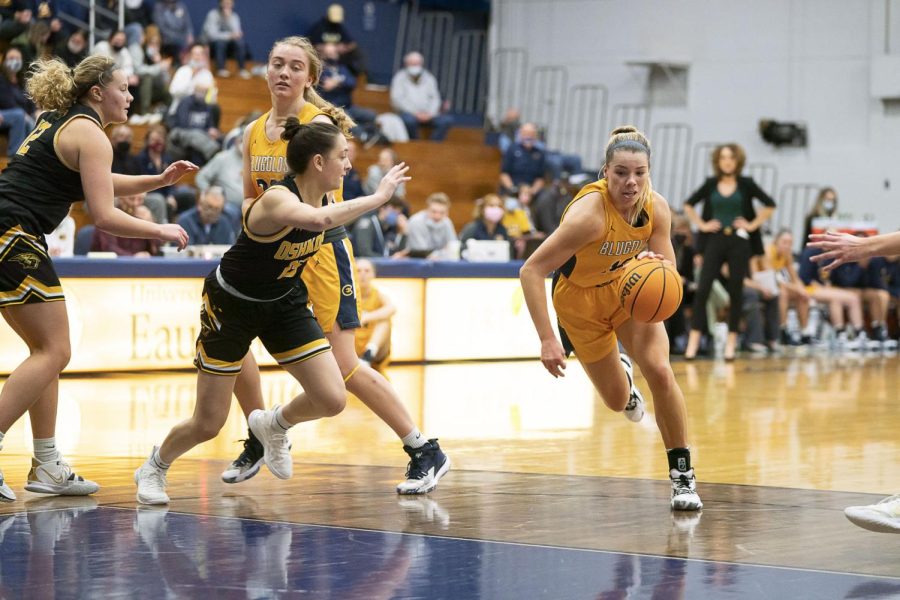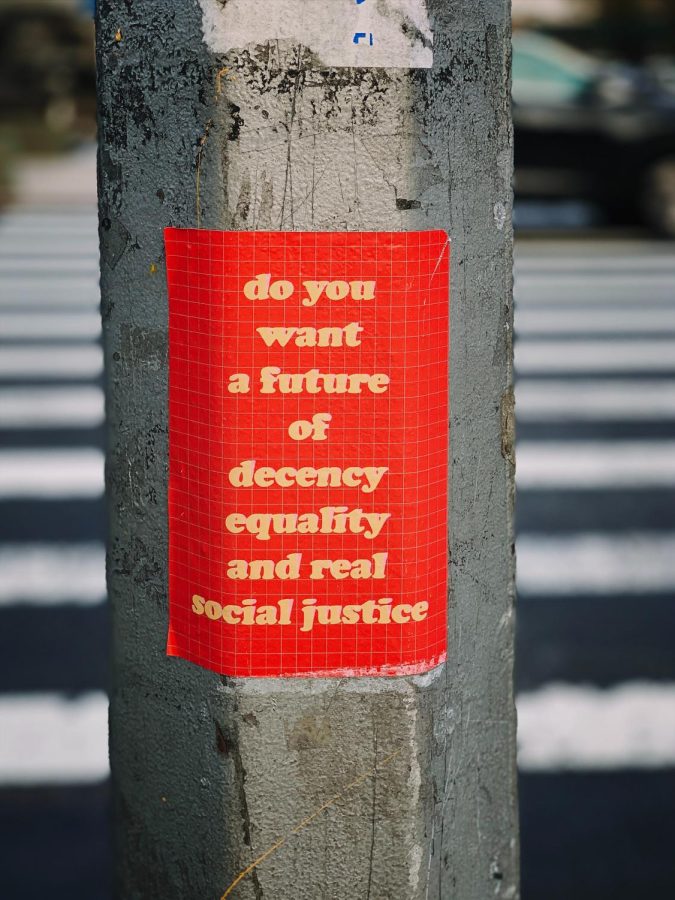Imagine your beginning of the semester trip to the bookstore, arms loaded down with seven to eight textbooks you’ll probably never crack open.
Imagine your 20-minute walk to class, backpack loaded down with about 25 pounds of class materials.
Now imagine yourself with no textbooks, no class manuals and no backaches.
Welcome to the world of e-books and open-source textbooks.
While many universities and colleges nationwide implement such technology into their courses, UW-Eau Claire is not quite ready for the shift. Representatives from both McIntyre Library and University Bookstore said a complete switch to electronic books is not feasible in the near future.
“There’s not a lot of call for it here in a rental system,” said Joe Picconatto, general manager of the bookstore.
Picconatto said an e-book is an online, readable version of a book, from novels and non-fiction to reference materials and textbooks. He said the bookstore would offer more e-books if professors requested them.
One disadvantage to electronic textbooks is each book is only downloadable once and only to one computer, Picconatto said. Textbooks are often only valid for a publisher-specified amount of time and are non-returnable.
“We’ll see where instructors want to take it,” Picconatto said. “I think a rental program is always going to be better than an e-book program that comes out.”
For example, Picconatto said the high-demand Accounting 202 textbook is available both in e-book version and as a rental.
But, “if I’m already renting my accounting book, why would I want to pay $45 for an e-book?” he said.
John Pollitz, director of McIntyre Library, has published research articles relating to the high cost of textbooks. On average, students at non-rental universities pay about $900 a semester for books.
He added that when universities look to solve this steep burden on their students, they often look to rental programs like the one in Eau Claire.
Christopher Cox, Dean of Libraries at Western Washington University and formerly the assistant director of libraries at Eau Claire, said e-books will never replace traditional books, because “nothing is as practical as just holding a book.”
At WWU, Cox said the library purchased a Kindle – Amazon’s wireless reading device to which users can download books – to see if it wants to start a lending program for its students.
“It never ends up being as practical as paper,” Cox said.
Picconatto said he couldn’t imagine trying to read an entire novel on a handheld device.
“They’re interesting, but I don’t think they’re all the way to where technology can take them,” he said.
Pollitz said programs where students can check out devices like the Kindle or Rocket eBook have been tested at several university libraries, without much success.
“It’d be interesting to try.” Pollitz said, adding the devices are an expensive investment to make if students are not interested in using them.
“(But) you’re going to be giving up some things when you do (use an) e-book,” Pollitz said, such as where students like to study and if they like to make marks in their books.
Plus, Picconatto said, not every textbook is available in an e-book version. It’s up to the publisher, he said.
However, Eau Claire does offer electronic alternatives for students tired of lugging pounds of books and reference materials.
Pollitz said the library has access to NetLibrary, which offers over 9,700 electronic books. These books aren’t textbooks, but online versions of novels and other books.
One advantage to the books on NetLibrary is that students can search the text for a particular word or passage, Pollitz said. Students can also make notes in their account as they read, he added.
Google Book Search is another example of free books available over the Internet, Pollitz said.
Google Book Search is a search engine that functions as a resource to millions of books worldwide. As part of its Library Project, Google offers public domain books in full PDF format, according to the Web site. For copyrighted items, only small fragments or a few pages are shown, depending on publishers’ permission.
Books on everything from classic literature and poetry to general science and math are accessible through Google Book Search.
“(Google Book Search) helps you make a more informed decision if you want to check out a book,” Pollitz said, since most book searches also produce links to where users can buy or borrow the book.
A more common use for electronic resources are online databases through the library.
Eau Claire librarian Ronadin Carey said reference materials are the most practical for electronic format.
The library is cancelling its subscription to several print versions of reference books because of the easier online access.
“Cancelling the print when the online is as complete . saves us money that can be used for additional databases,” Carey said.
In other cases, the online edition isn’t as complete as the print version, Carey said, so the library keeps such reference books in-stock.
Overall, however, students find reference sources like directories are easier to use online than a print version, Carey said.
Sophomore Nick Mayer said he hasn’t had any courses that required e-book references, though some required research using library databases.
“(Electronic resources) are handy in terms of saving paper and making things easier to view in the classroom, but it’s kind of a hassle,” Mayer said.
Mayer said he doesn’t like the idea of reading a whole book online and would rather have the book “in hand.”
“Even though it’s probably saving a ton of paper, I’d prefer to have it along with me,” he said.
Cox agreed electronic resources are practical for reference books, journals and newspaper databases. But reading an entire novel online, he said, doesn’t seem practical. Cox said he sees e-books and open source textbooks most useful for reference, not leisure, in the long-run.
So will Eau Claire students enjoy a lighter backpack load in the future?
“If they build a better product and e-books become more standardized,” Cox said, “than I’d say yes.”





